SACRUM ALGORITHM
How does the sphere of the sacred currently intersect with that of artificial intelligence? In the near future, could AI, using a database of holy books and philosophical texts, create an entirely new belief system that meets the needs of late-modern man?
What impact would the emergence of such a religion have on notions of human identity, spirituality, transcendence? Would we still be unique creatures, or just another step on the evolutionary ladder? Would we be creators or creatures? Would the belief system created from the information we leave behind on the Internet be a reflection of our own souls?
The starting point for the project is a conversation conducted with ChatGPT, which answers questions such as: do you think humans evolved to create artificial intelligence? Can artificial intelligence become a new religion? With the help of AI, are we able to create the first God that meets all human needs? What would be the differences between AI belief system and traditional religion?
Text, direction, visuals: Wera Makowskx
Music: Adrian Kolarczyk
Dramaturgy: Piotr Froń
Choreography: Magdalena Kawecka
Cast:
Oskar Jarzombek
Magdalena Kawecka
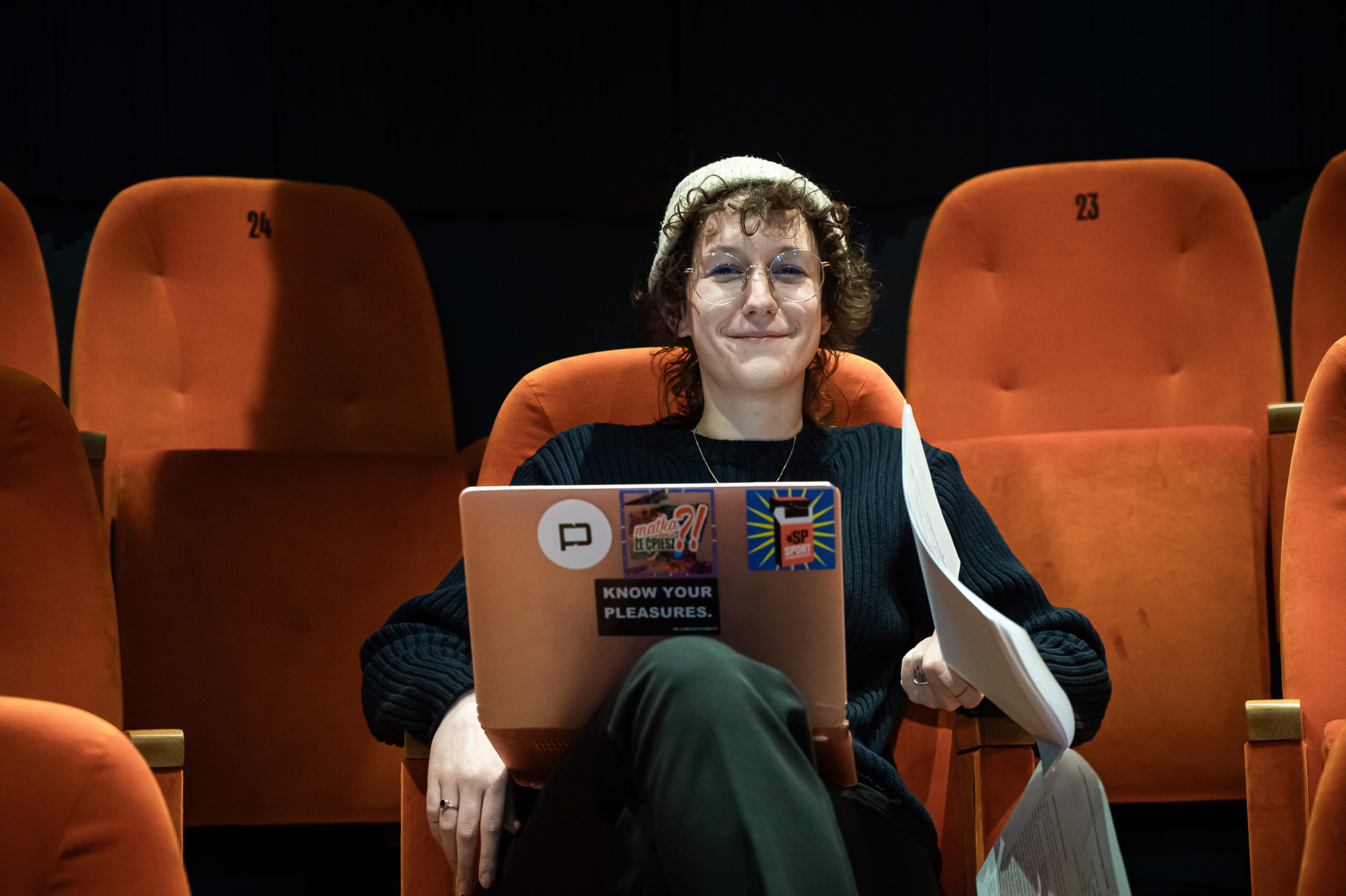
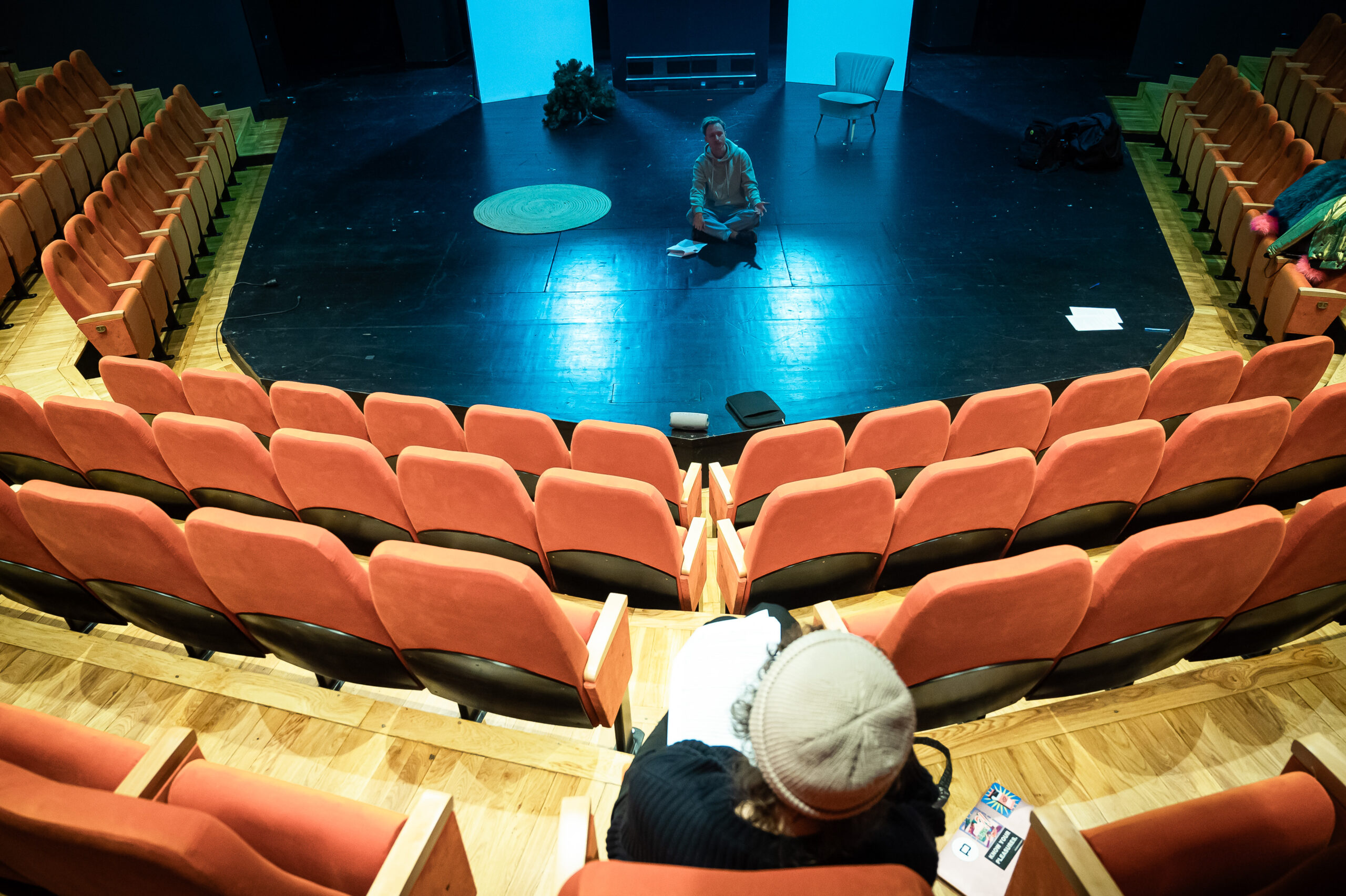
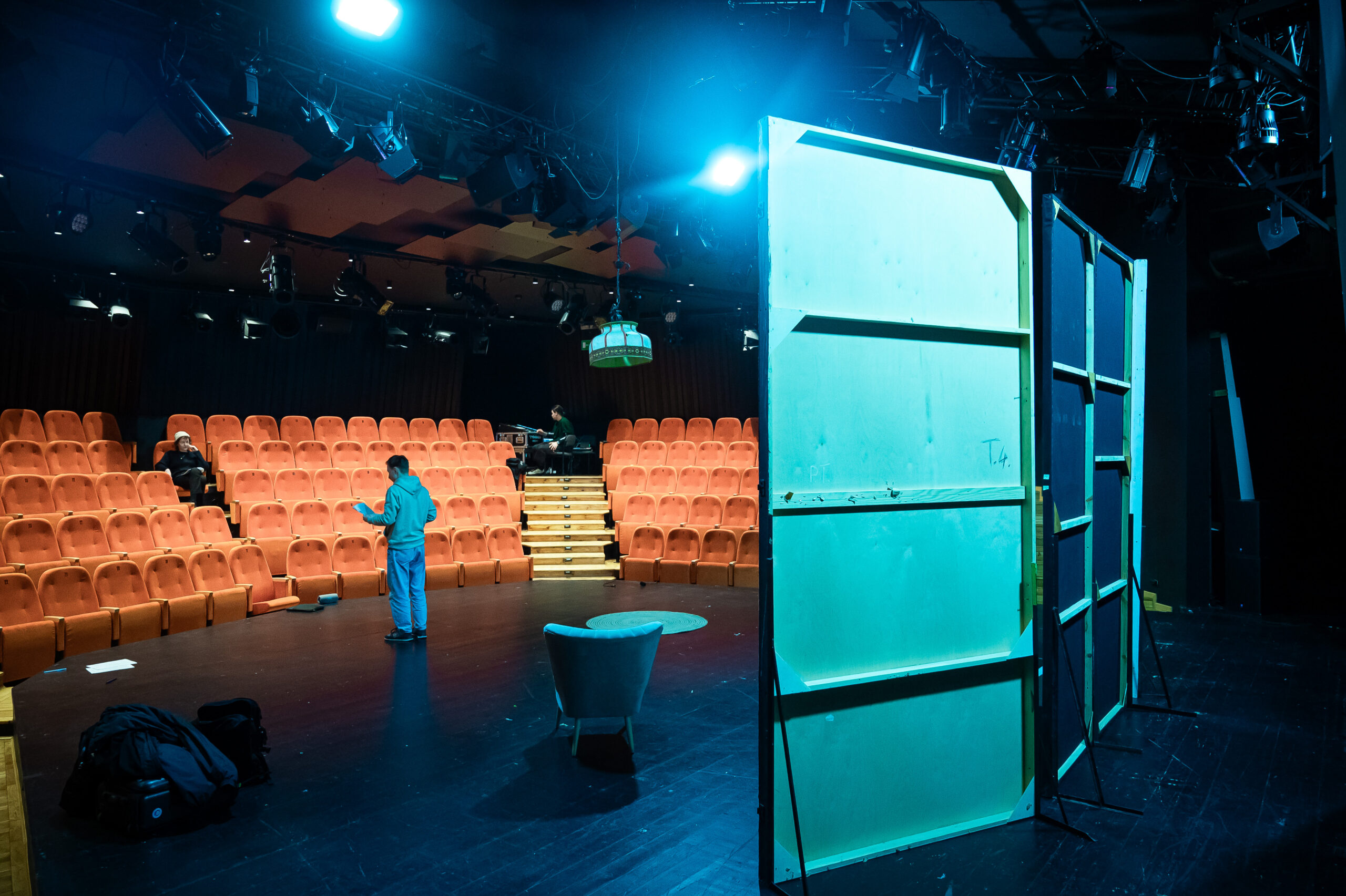
(GO) DIG A HOLE AND SHOUT INTO IT
The pretext for starting the project is being lost in one’s own language, which, under the influence of socio-political changes, is becoming a foreign language. Instead of serving communication, it becomes a tool of manipulation, control and oppression. The capitalist system demolishes understanding by erecting a tower of Babel, in which this time it is not the languages that mix, but the meanings of the one. It becomes difficult to trust not only the words of others but even one’s own. With the changes taking place comes the need to describe new phenomena, to name things as if for the first time.
The work-in-progress show will take the form of a “language lesson”. The process of accelerated language learning often consists of tasks that engage the body and mind through play, music, movement. Through elementary exercises, we reacquaint ourselves with our initial language (do we still want to call it native?)-exploring the sounds, reflexes and emotions behind selected words and slogans.
Direction: Bartlomiej Kalinowski
Dramaturgy: Mariusz Golosz
Music: Maciek Michaluk
Cast:
Andrzej Jakubczyk
Leszek Malec
Beata Wnęk-Malec
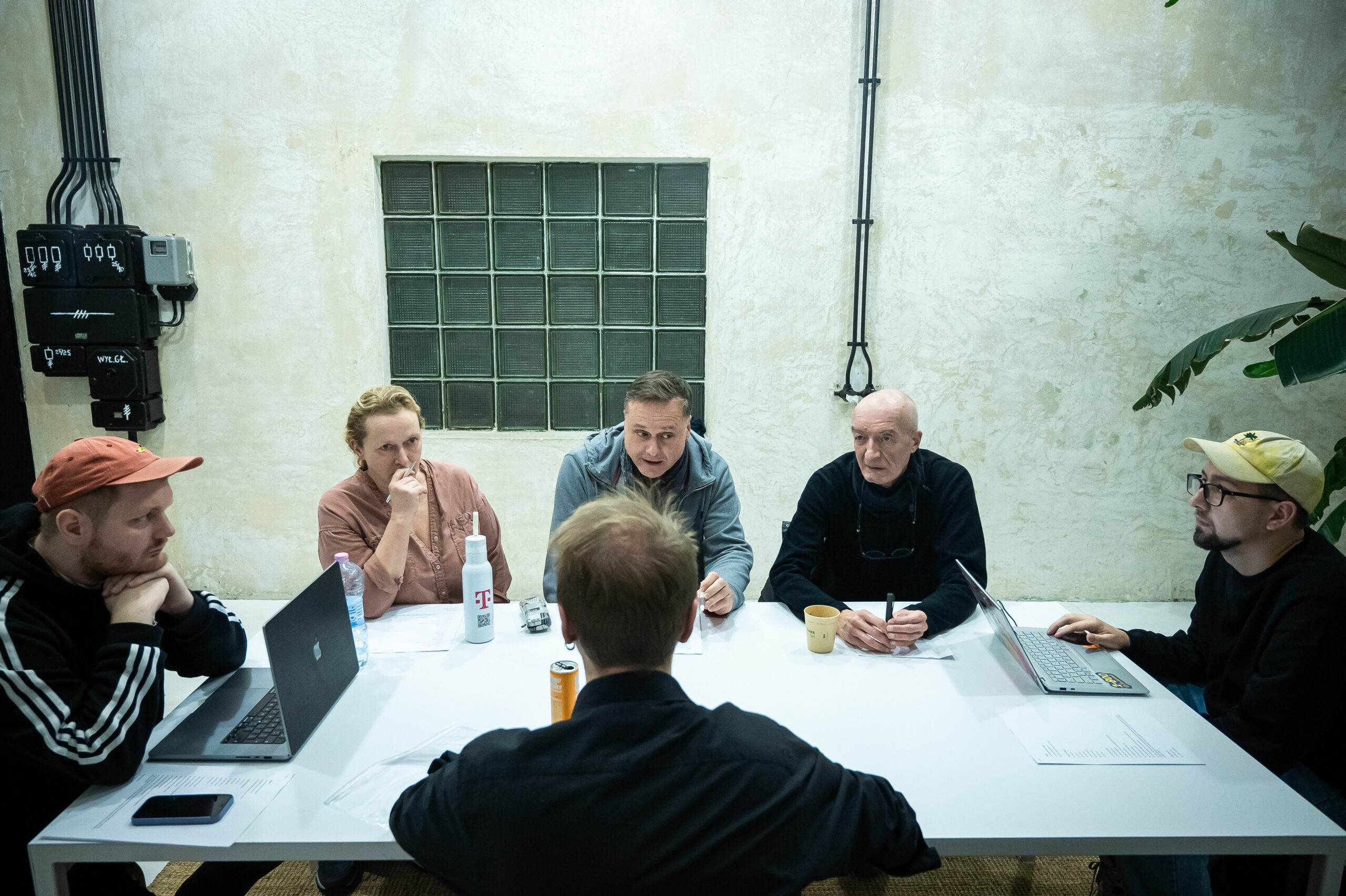
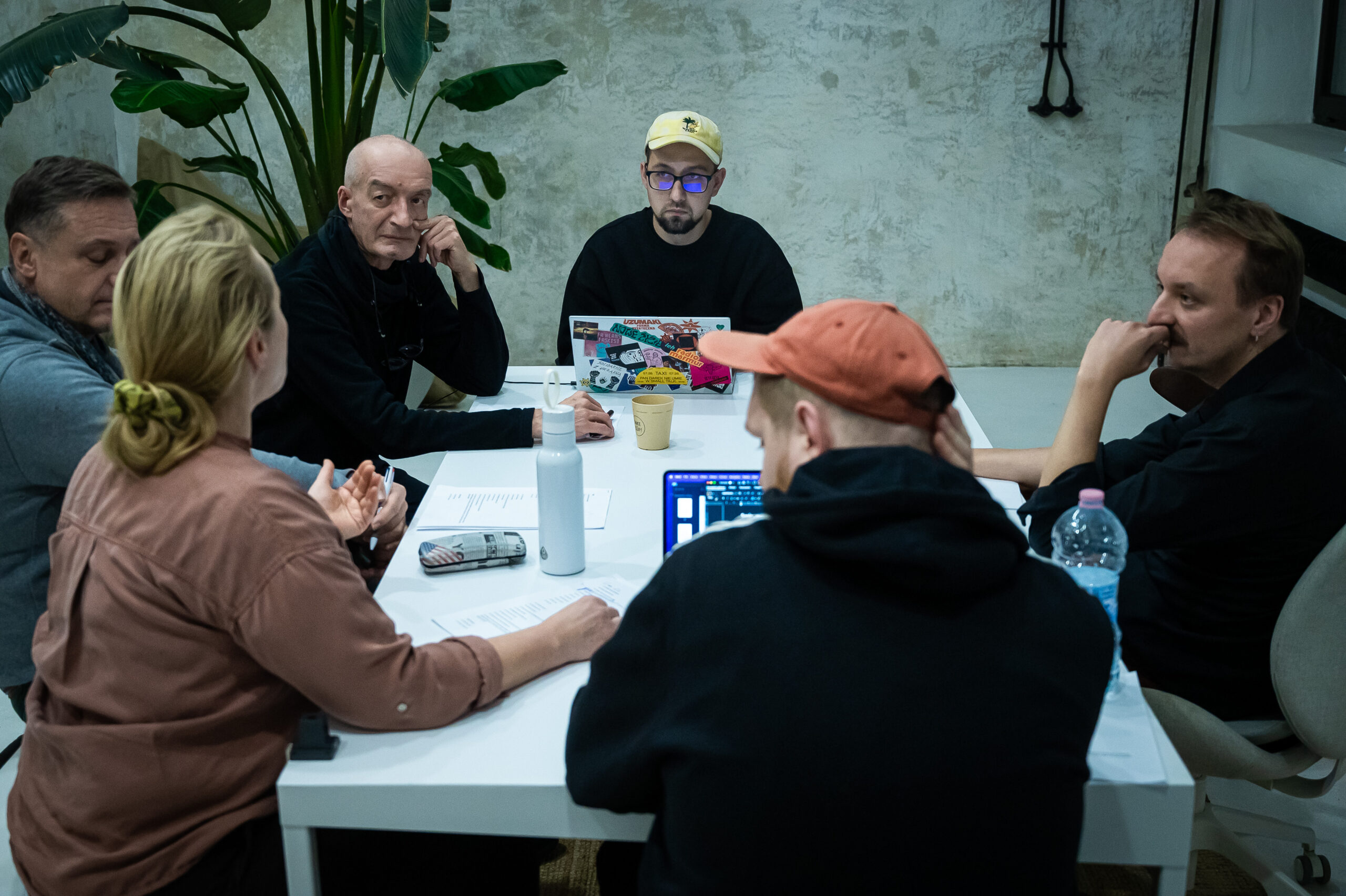
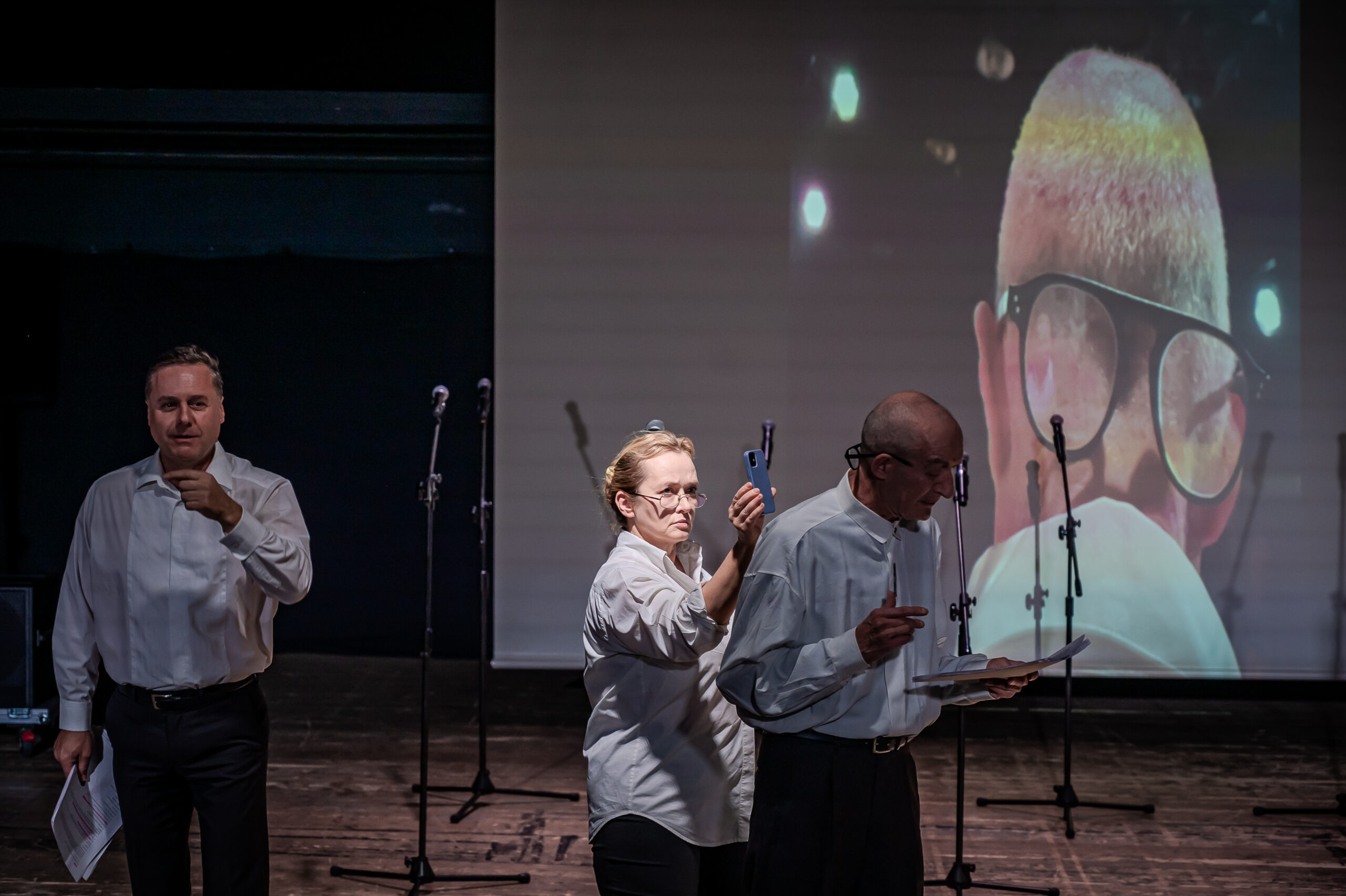
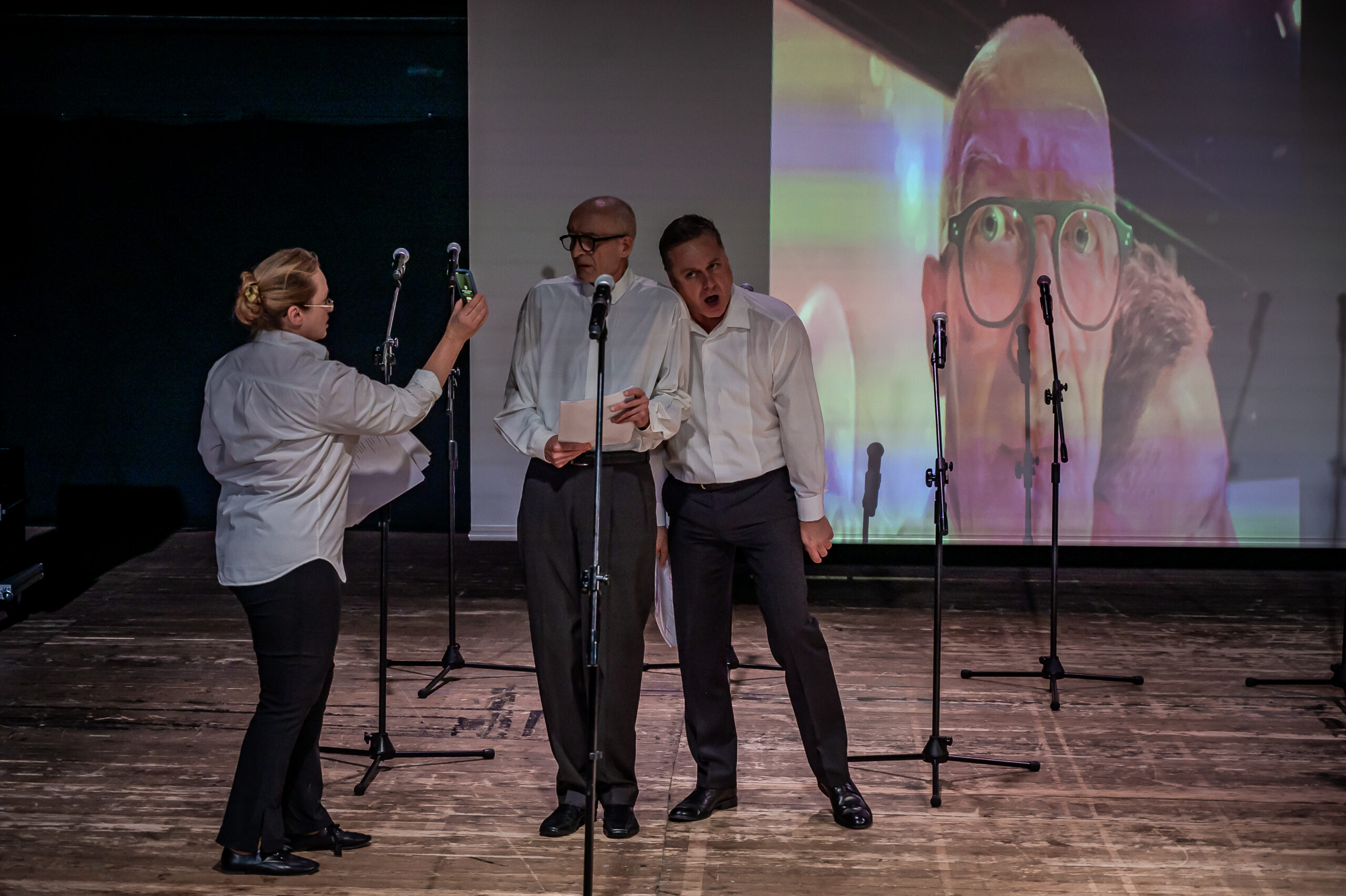
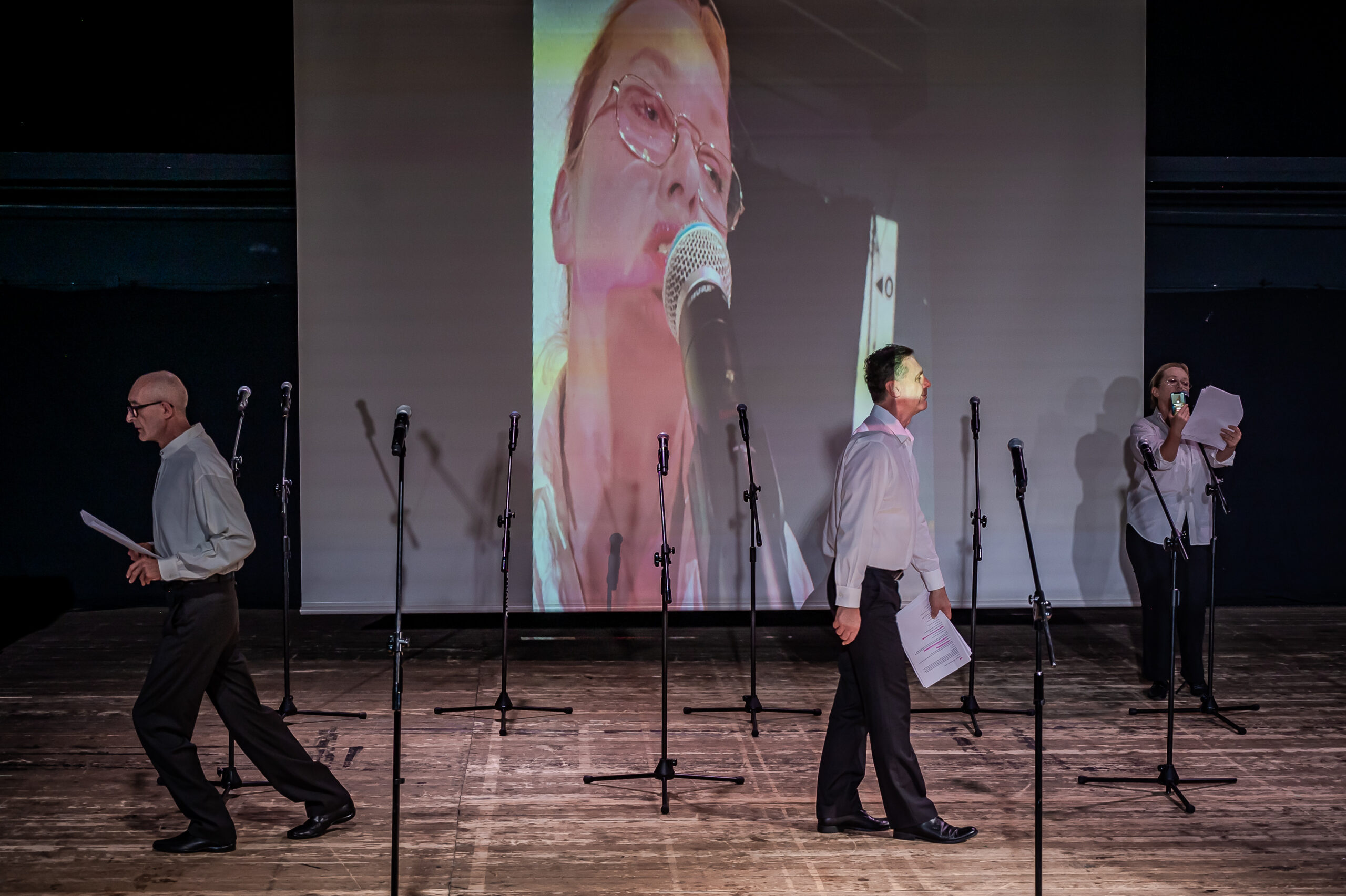
HUMAN 2.0. TV QUIZ SHOW
One of the cornerstones of the technological development that created civilization was the selection and crossing of living organisms. The 21st century has brought us a breakthrough technology in genetic engineering – CRISPR-Cas9. This is a method that allows “copy/copy/paste” actions in any organism. We are living on the set of a science-fiction movie. In China, HIV-resistant twins were born thanks to this method. We have become a program that can tamper with its own source code. This brings frightening visions of the future, but also great hopes. We can cure hereditary diseases, but we can also endow ourselves with faster growing muscles, better immunity or traits of other species. We can interfere with ourselves and future generations. We can create a Human 2.0.
An interactive work-in-progress show in an attractive format modeled on popular teleseminars will invite the audience to discuss the possibilities of the CRISPR-Cas9 method.
What qualities would we like to get rid of? What traits would we like to gain? Or should we try to prohibit tampering with Homo Sapiens’ DNA?
Direction: Jan Hussakowski
Dramaturgy: Andrzej Blazevich
Cast:
Joanna Osyda
Kacper Sasin
Konrad Wosik
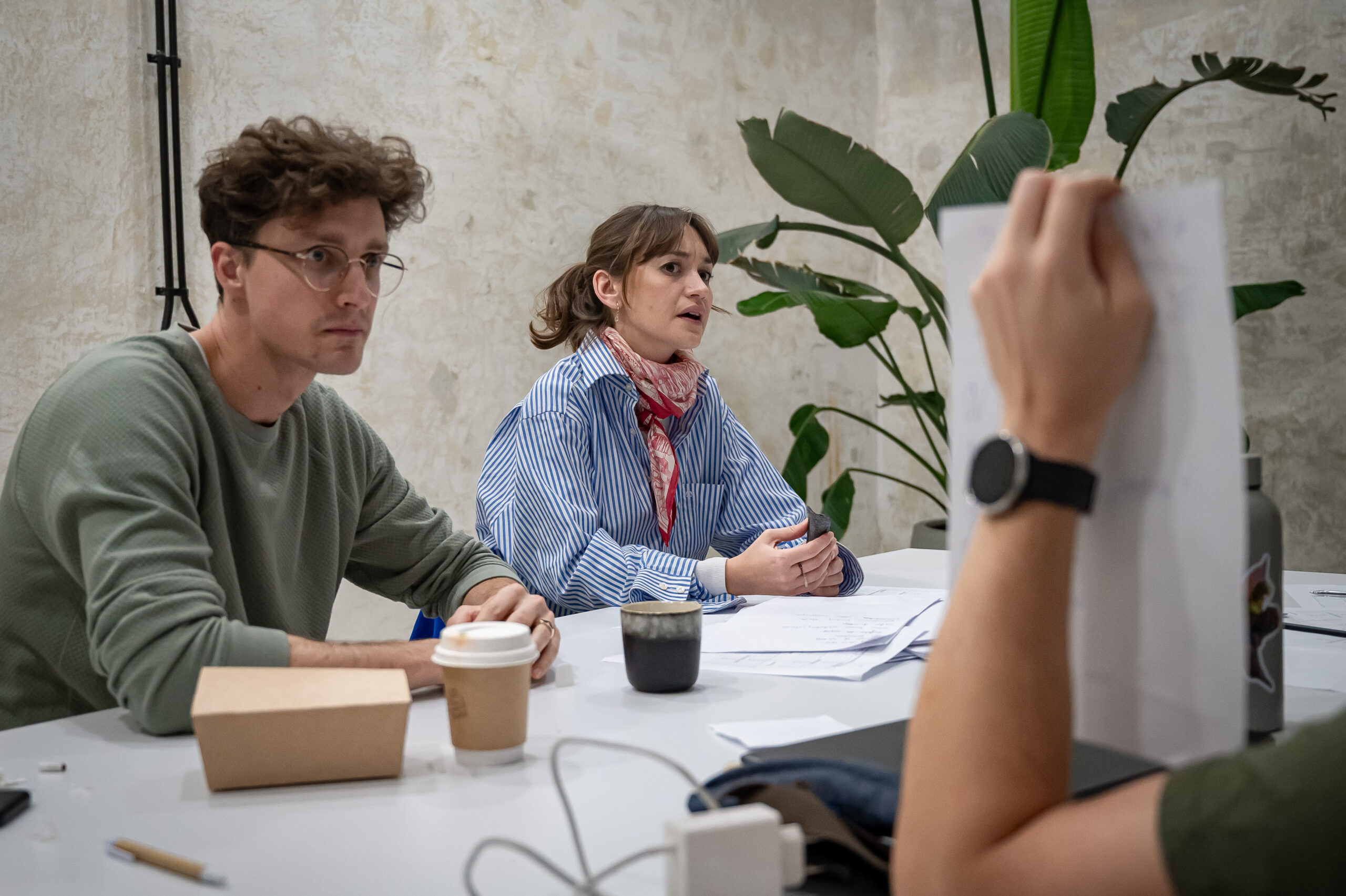
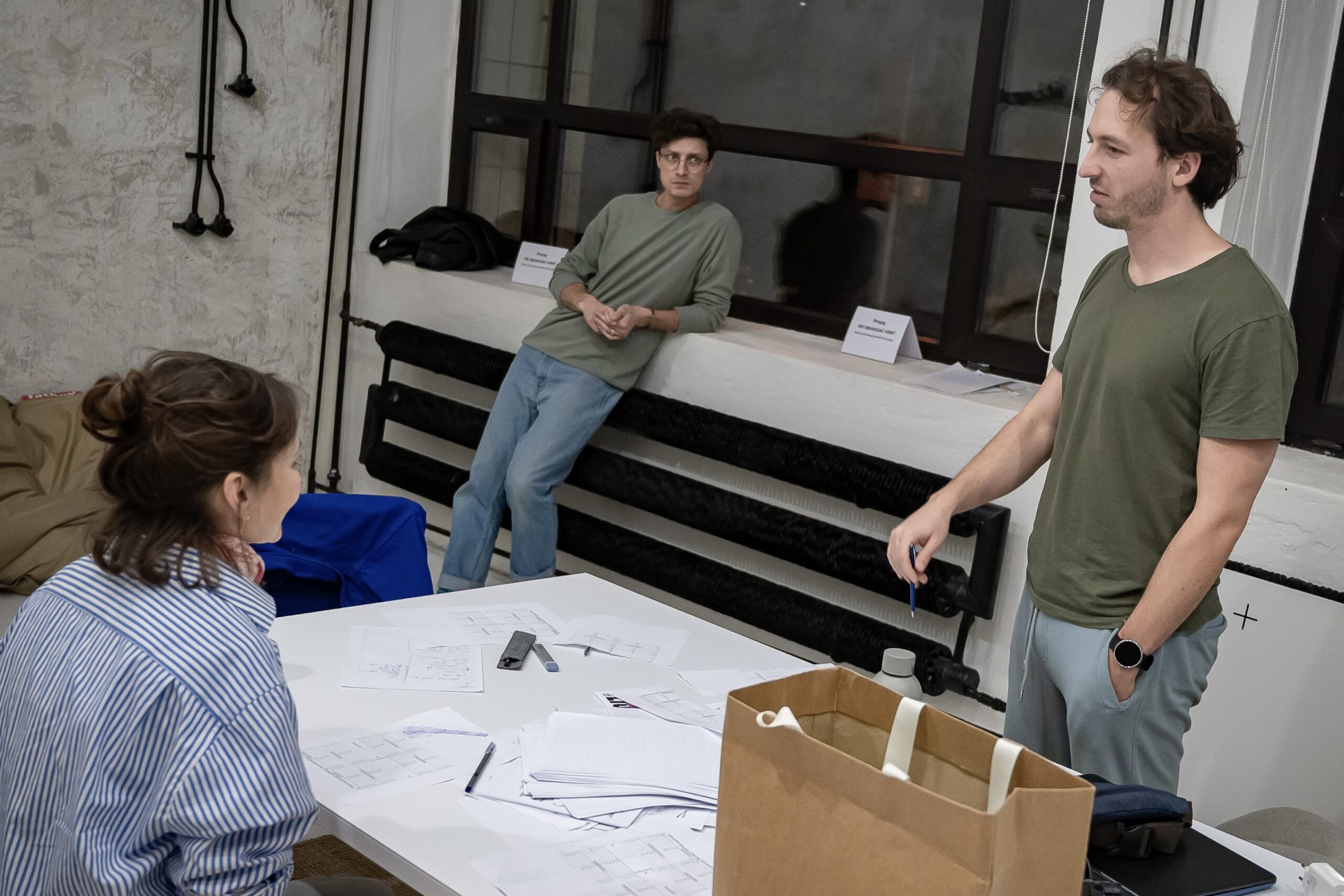
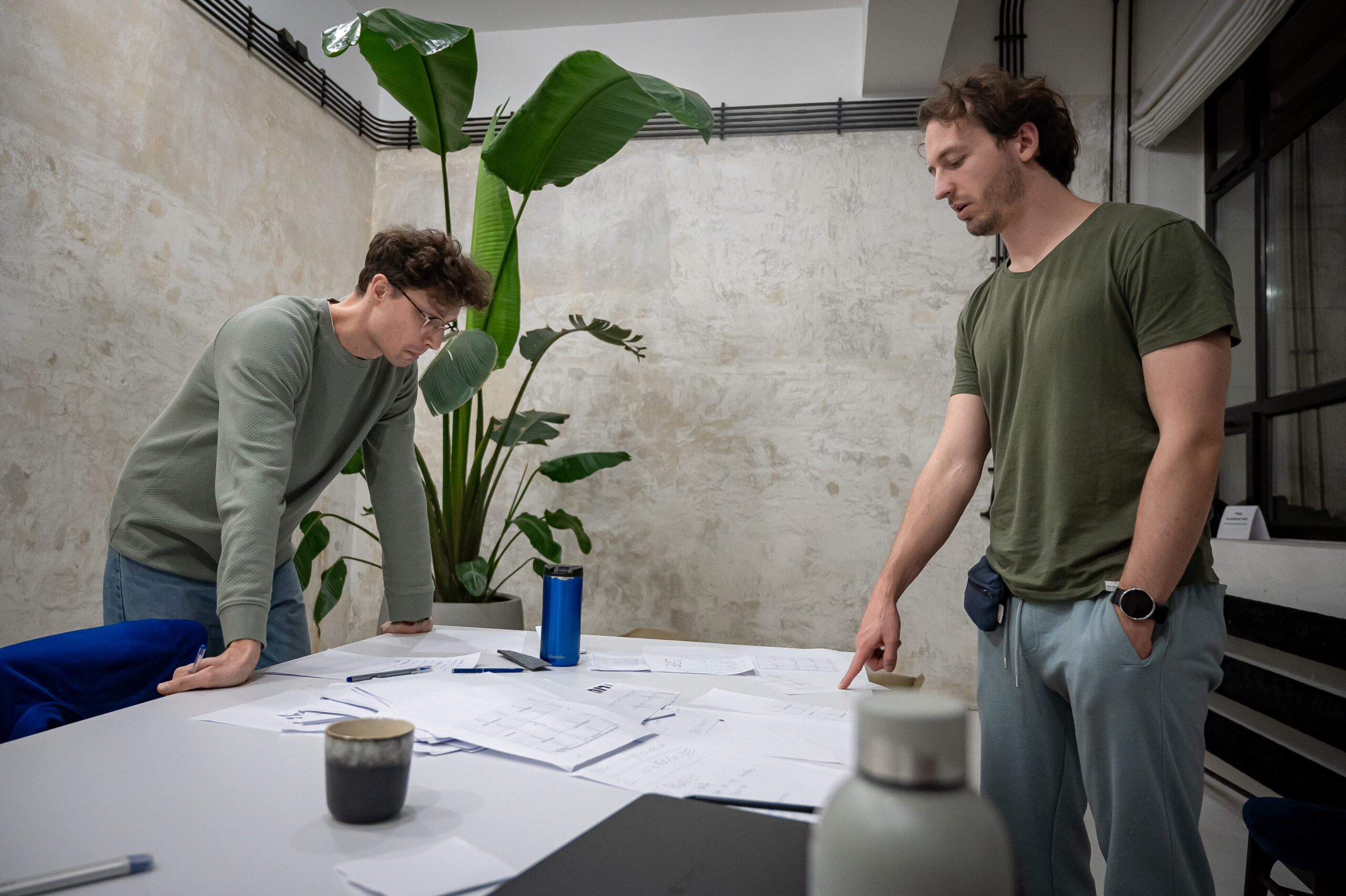
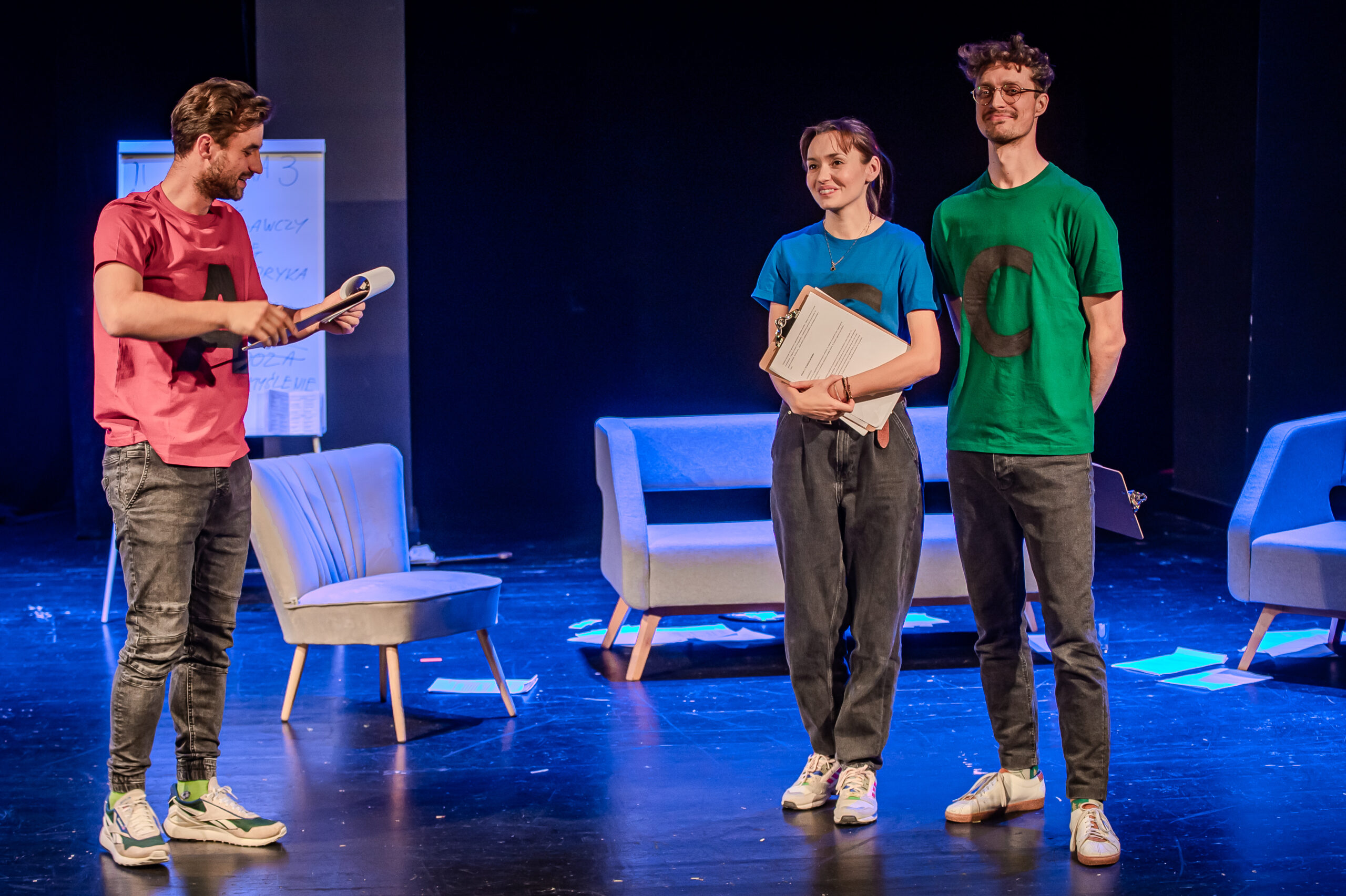
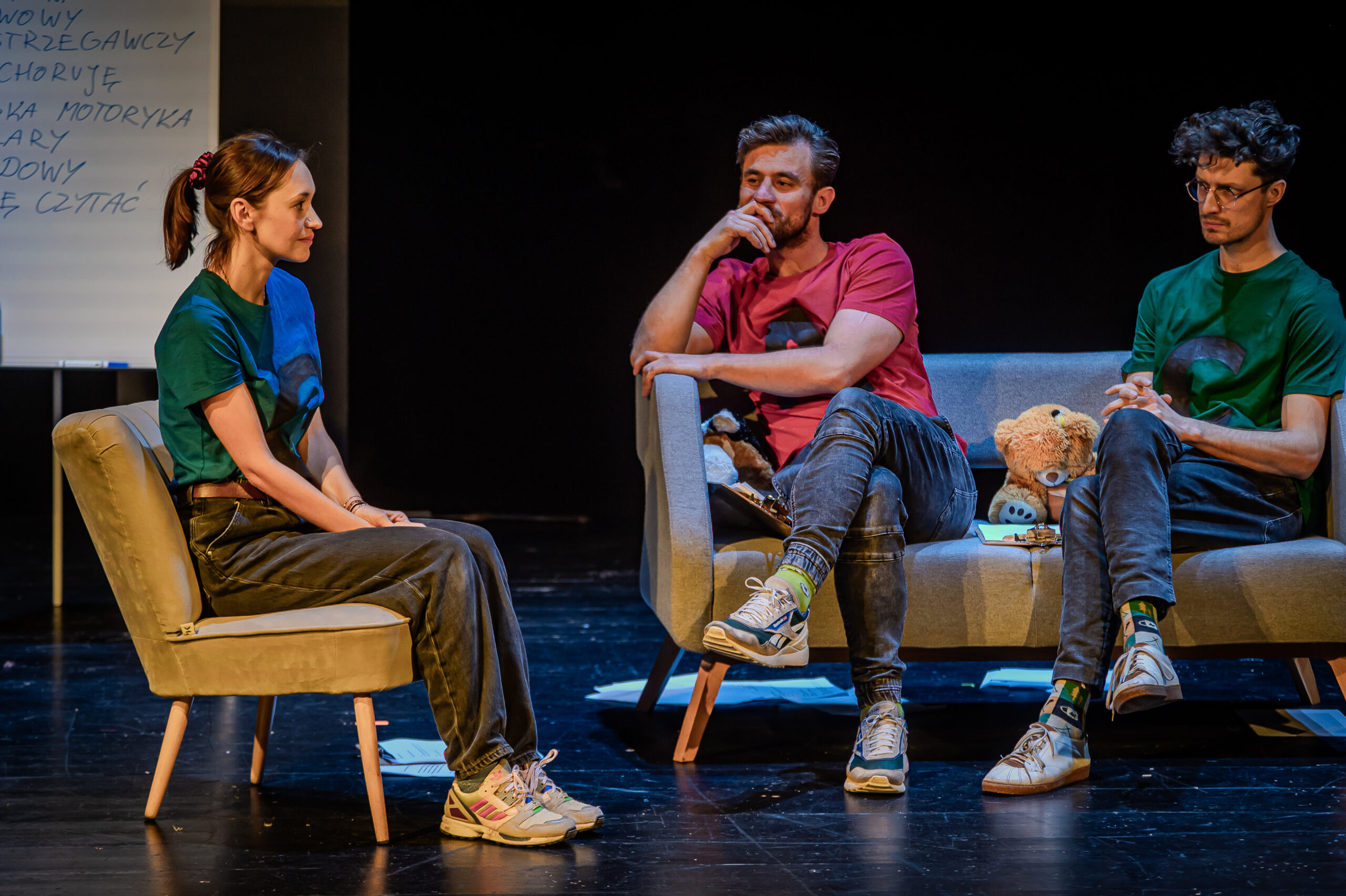
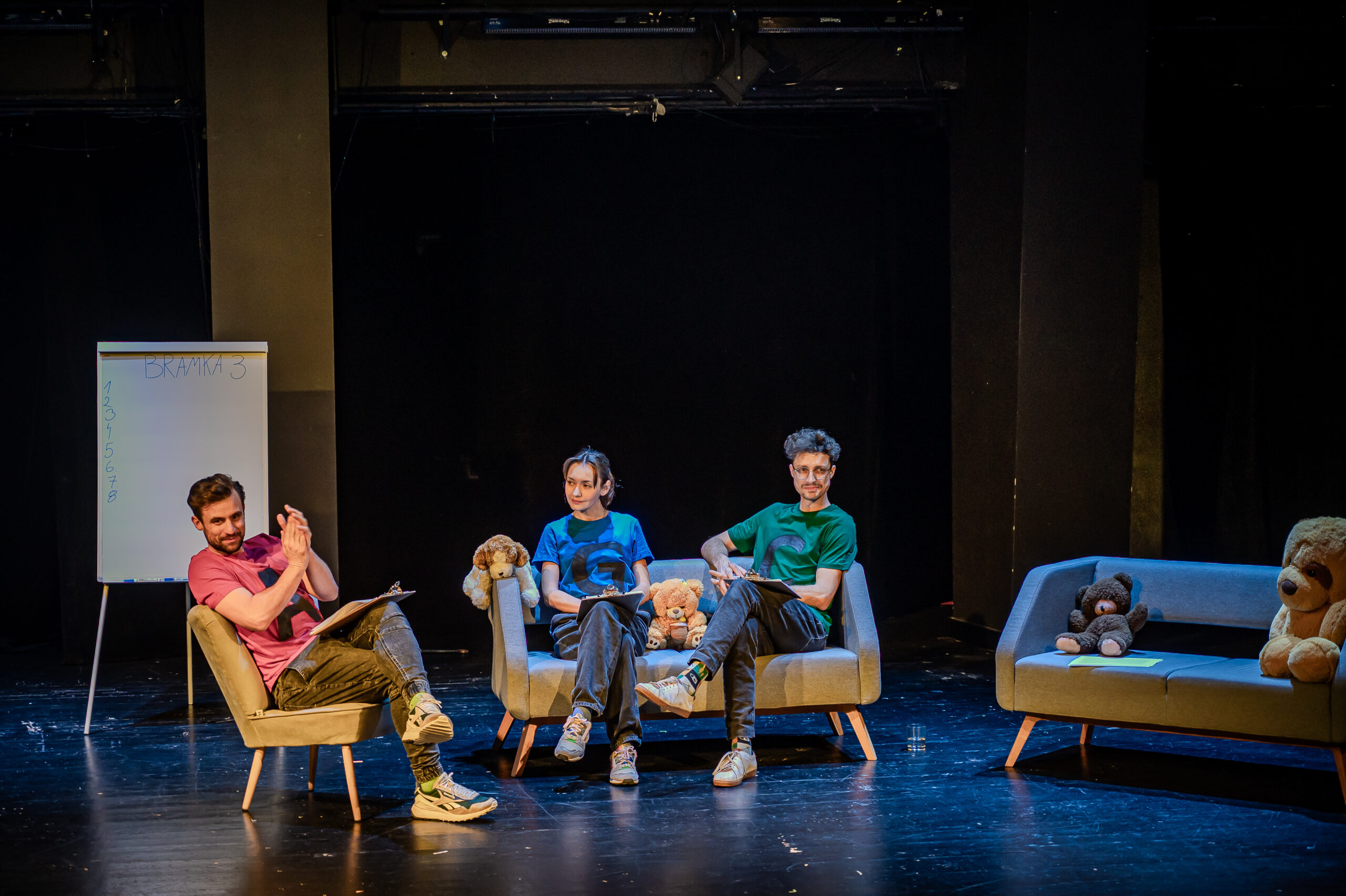
SACRUM ALGORITHM
How does the sphere of the sacred currently intersect with that of artificial intelligence? In the near future, could AI, using a database of holy books and philosophical texts, create an entirely new belief system that meets the needs of late-modern man?
What impact would the emergence of such a religion have on notions of human identity, spirituality, transcendence? Would we still be unique creatures, or just another step on the evolutionary ladder? Would we be creators or creatures? Would the belief system created from the information we leave behind on the Internet be a reflection of our own souls?
The starting point for the project is a conversation conducted with ChatGPT, which answers questions such as: do you think humans evolved to create artificial intelligence? Can artificial intelligence become a new religion? With the help of AI, are we able to create the first God that meets all human needs? What would be the differences between AI belief system and traditional religion?
Text, direction, visuals: Wera Makowskx
Music: Adrian Kolarczyk
Dramaturgy: Piotr Froń
Choreography: Magdalena Kawecka
Cast:
Oskar Jarzombek
Magdalena Kawecka



(GO) DIG A HOLE AND SHOUT INTO IT
The pretext for starting the project is being lost in one’s own language, which, under the influence of socio-political changes, is becoming a foreign language. Instead of serving communication, it becomes a tool of manipulation, control and oppression. The capitalist system demolishes understanding by erecting a tower of Babel, in which this time it is not the languages that mix, but the meanings of the one. It becomes difficult to trust not only the words of others but even one’s own. With the changes taking place comes the need to describe new phenomena, to name things as if for the first time.
The work-in-progress show will take the form of a “language lesson”. The process of accelerated language learning often consists of tasks that engage the body and mind through play, music, movement. Through elementary exercises, we reacquaint ourselves with our initial language (do we still want to call it native?)-exploring the sounds, reflexes and emotions behind selected words and slogans.
Direction: Bartlomiej Kalinowski
Dramaturgy: Mariusz Golosz
Music: Maciek Michaluk
Cast:
Andrzej Jakubczyk
Leszek Malec
Beata Wnęk-Malec





HUMAN 2.0. TV QUIZ SHOW
One of the cornerstones of the technological development that created civilization was the selection and crossing of living organisms. The 21st century has brought us a breakthrough technology in genetic engineering – CRISPR-Cas9. This is a method that allows “copy/copy/paste” actions in any organism. We are living on the set of a science-fiction movie. In China, HIV-resistant twins were born thanks to this method. We have become a program that can tamper with its own source code. This brings frightening visions of the future, but also great hopes. We can cure hereditary diseases, but we can also endow ourselves with faster growing muscles, better immunity or traits of other species. We can interfere with ourselves and future generations. We can create a Human 2.0.
An interactive work-in-progress show in an attractive format modeled on popular teleseminars will invite the audience to discuss the possibilities of the CRISPR-Cas9 method.
What qualities would we like to get rid of? What traits would we like to gain? Or should we try to prohibit tampering with Homo Sapiens’ DNA?
Direction: Jan Hussakowski
Dramaturgy: Andrzej Blazevich
Cast:
Joanna Osyda
Kacper Sasin
Konrad Wosik

















